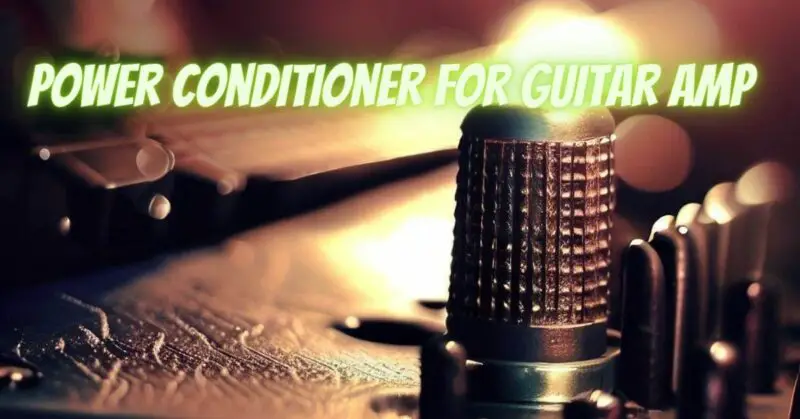In the intricate world of guitar amplification, achieving optimal sound quality is a perpetual pursuit for musicians and audio enthusiasts alike. Amidst the myriad of gear options, the power conditioner emerges as a critical but often overlooked component. This comprehensive guide aims to unravel the complexities surrounding power conditioners for guitar amps, exploring their functions, benefits, and the transformative impact they can have on the sonic landscape.
The Foundation: Understanding Power Conditioning
1. What is a Power Conditioner?
A power conditioner is an electronic device designed to enhance the quality of the electrical power supplied to audio equipment. It serves as a buffer between the wall outlet and the guitar amp, addressing issues such as electrical noise, voltage fluctuations, and interference that can compromise audio performance.
2. Voltage Regulation:
One of the primary functions of a power conditioner is voltage regulation. Inconsistent or fluctuating voltages from the electrical grid can impact the performance of guitar amps, leading to variations in sound quality and potential damage to sensitive components. Power conditioners with voltage regulation capabilities ensure a stable and reliable power supply.
Enhancing Sonic Purity
3. Noise Reduction:
Electrical noise, often induced by other devices on the same circuit or external factors like radio frequency interference, can introduce unwanted artifacts into the guitar signal. Power conditioners equipped with noise filtering technology act as a shield, isolating the guitar amp from external interference and minimizing the risk of signal degradation.
4. Ground Loop Isolation:
Ground loops, a common issue in audio setups, can result in hums, buzzes, and unwanted noise. Power conditioners with ground loop isolation features help break the loop, ensuring a clean and noise-free power supply to the guitar amp. This feature is particularly crucial in environments with multiple interconnected audio devices.
5. Surge Protection:
Power surges, whether caused by lightning strikes or fluctuations in the electrical grid, pose a significant threat to guitar amps. Power conditioners equipped with surge protection features act as a first line of defense, diverting excess voltage away from the connected equipment and safeguarding against potential damage.
Tailoring the Tone
6. Voltage Selection:
Some power conditioners offer the flexibility of selecting the operating voltage. This can be especially useful for musicians touring internationally, where different regions may have distinct voltage standards. The ability to adapt the power conditioner to local voltage specifications ensures consistent performance across diverse environments.
7. Filtering and Conditioning:
Beyond basic noise reduction, advanced power conditioners often incorporate additional filtering and conditioning mechanisms. These can include multi-stage filters targeting specific frequency ranges, further refining the power signal and contributing to a cleaner, more transparent audio output.
Choosing the Right Power Conditioner
8. Consideration for Amp Size:
The power requirements of guitar amps vary based on their size and wattage. It’s essential to choose a power conditioner that can handle the specific power demands of the amplifier. This consideration ensures optimal performance and longevity of both the power conditioner and the connected equipment.
9. Rack-Mount vs. Portable:
Power conditioners come in both rack-mount and portable formats. Musicians with rack-mounted setups may opt for a unit that seamlessly integrates into their rig, while those with more compact setups might prefer a portable and easily transportable power conditioner. Consider the practicality and mobility requirements when making a selection.
Installation and Best Practices
10. Proper Grounding:
Ensuring proper grounding is crucial for the effective operation of a power conditioner. Follow manufacturer guidelines for installation, and use high-quality power cables with sufficient gauge to minimize resistance and maximize conductivity.
11. Routine Maintenance:
Power conditioners, like any electronic device, benefit from routine maintenance. Regularly inspect cables, connectors, and the unit itself for signs of wear or damage. Performing preventive maintenance enhances the longevity and reliability of the power conditioner.
The power conditioner, often regarded as a silent guardian in the realm of guitar amplification, plays a pivotal role in shaping the sonic landscape. By addressing power quality issues, minimizing interference, and providing a stable foundation, a well-chosen power conditioner becomes an indispensable ally for musicians seeking pristine sound reproduction and the preservation of their cherished guitar tones. As technology continues to evolve, the power conditioner remains a timeless investment, unlocking a world of sonic purity and empowering artists to embark on an immersive and unblemished musical journey.


